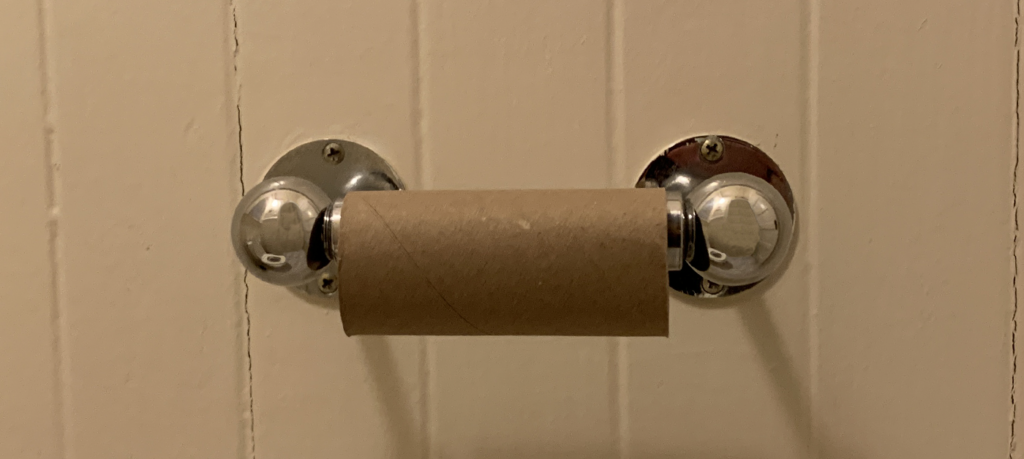
Grief can often feel like being quarantined. Now, it’s even more so. Grieving is hard and isolating even at the best of times, and unfortunately, we are far from the best of times.
Everyone affected by this pandemic is suffering a loss of some sort. But what if you were already grieving when our country began the process of social distancing? What happens when a person can’t talk with their therapist and interact with their support networks as usual? What happens to people who are already suffering from anxiety and depression?
Although the point of this article isn’t to compare grief, let’s talk about what other people could be experiencing as a way to put what we are experiencing into a different perspective. Because, there are people right now who are truly suffering and grieving significant losses, some of which you probably haven’t thought about.
The Grief Recovery Institute lists more than 40 different types of loss that we experience that can cause us grief. These range from minor annoyances (like trouble with the in-laws) to life-altering tragedies (like death). For example, everyone that is under quarantine or shelter-in-place order is probably experiencing a few of these losses:
- Change in eating/sleeping habits
- Change in frequency of arguments
- Change in financial states
- Change in social activities
- Change in sexual activity
- Change in recreation
- Change in health
- Change in work
It’s plain to see that these vary in severity and they are subjective to the person experiencing them.
It’s easy to focus on the things in our immediate environment and complain about them. But what happens when we think about other people in our communities who are suffering a great deal more than we are?
Take our children for example. In their experience, they have never faced anything like this in their lives. For high-school juniors and seniors, they will be missing their prom, and other major social events that culminate the ending of their high-school careers. Some will even head off to college without sitting in a classroom with their classmates again or going through a graduation ceremony. To adults, those events may pale in comparison to others, but for them, they matter a great deal.
Many people have lost the comfort and safety of our routines. Social distancing has forced us indoors and we’ve had to cancel vacations, weddings, and other normal social gatherings and interactions. Confinement has also taken our peace; any parent with hyper kids stuck in the house can relate.
We have lost our security with worry about our finances and jobs. Are we still going to have a job in a couple months? How are we paying rent, buying food, and getting needed medicine? This $2 trillion economic aid package will help, sure, but it’s only a bandaid on a gaping wound. It doesn’t help long-term. We haven’t even begun to see the true economic impacts of this disaster.
Then there is the loss of family relationships and connectedness. I recently wrote about social isolation and the effect that it has on an already lonely population. What happens to fathers and mothers who don’t have their normal opportunity to see their children because of split custody?
We have lost our feeling of safety in this pandemic, especially if you’re in a risk category or you have friends and loved ones who are. To top it all off, we have already lost trust in media and journalism, we are constantly bombarded with rumors and increasingly blatant racism, including from our president.
Even our funerals and memorials have been affected. I will be writing about that one in particular later, but it too has impacted a great many families. In a similar vein, there are families with loved ones in hospitals who are dying from “normal” causes, but they are dying alone! Imagine not being able to be beside your loved ones as they take their last breath because the hospital is closed to all visitors?
It really puts our grief over toilet paper and other losses into a different perspective doesn’t it?

We haven’t even covered all the people who were already deep in grief with other losses, and all the people in our community and families who have pre-existing psychological conditions, like depression, anxiety, and suicide ideation. How is all of this affecting their mindset? What happens when we are socially distanced when we are already grieving?
Through my many recent conversations with people deep in grief, I’ve heard time and time again that being alone at home with ourselves and our thoughts is the hardest thing. When we’re stuck at home after a major loss, it’s so hard because everywhere we look there’s another reminder of our grief. Our home doesn’t feel like home anymore…it becomes just a string of constant reminders of what we no longer have in our lives. It’s so hard to focus on anything else, which makes it easy to get stuck in grief.
The Grief Recovery Institute talks about six major myths about grief that we’re told all our lives. I’m going to talk about two of them now:
- We should grieve alone
- Keep Busy to avoid the pain
Grieve Alone
We’ve all probably heard the phrase,
“Laugh and the world laughs with you, cry and you cry alone.”
Imagine how silly it would be if every time we laughed we were socially required to excuse ourselves from the room to laugh and be happy quietly because those around us couldn’t deal with our strong emotions. The myth that we need alone time to grieve is total bunk. In the throws of our deep grief is when we need support from friends, family, and our community the most! Reach out to someone you care about and let them know you’re thinking of them.
Keep Busy
Keeping busy is one of those things that we try to do as a means of distracting ourselves from thinking about our loss. If we pack our day with so much to do, it will keep us from having idle time to dwell on our loss and sadness. While in the short term that practice can be effective, a person always has that idle time around bedtime and early morning.
However, now with this virus going around, many of us are working from home and sheltering in place, which makes the tactic of keeping busy almost impossible. When we’re at home we can’t ignore our thoughts and feelings.
If you or someone in your life is grieving, reach out immediately if you notice any of these warning signs:
- Suicide ideation
- Preexisting mental health conditions, such as anxiety and depression
- Sudden increases in sadness, worry, and mood swings
- Unhealthy eating or sleeping habits
- Avoidance of “normal social activities”
- Increased use of alcohol, tobacco, or other drugs
How has your grief and support been affected by the coronavirus and many of the business closings around the nation and world? Please leave your response in the comments below. Even if you have nobody else in your life to call on for support, you can still find some solace in online virtual grief support communities.
Helpful Tips
Reach out to those people in your life who you love. Stay Connected as best as you can. I recently talked about how Social Distancing is not the same as Social Isolation and how direct eye contact and a warm smile can make all the difference in the world to a griever!
You have the unique opportunity right now to not be distracted by life’s normal activities. You no longer have the excuse of “I just don’t have the time” because it seems that now, time is the only thing that we do have! Let’s use that time to reconnect with friends and family or others in our lives that we haven’t spoken with in a while.
Mind your Mind
You are in control of how you choose to react to situations. You have the time now to meditate and practice mindfulness. Are you responding or reacting? See my previous post on this topic and limiting your intake of news.
With all of this chaos and grief around us, let’s all take just a few minutes out of our day right now to look around to notice and appreciate everything in our lives that we can be grateful for. Recognize the little moments of joy that still exist in our lives. Take a walk outside with your 6′ perimeter fence. Let nature do its magic. Find a measure of gratitude and solace in something in this crisis that’s all your own.
Home is who we love, it’s not a place that surrounds us. If you know of someone who is going through any of these grief types, take just a few moments out of your day and call them. Reach out and simply tell them that you are thinking of them and listen. It can make all the difference in the world. The ways that we have to show up right now are the ways that we have always needed to show up. That part at least hasn’t changed.
Kevin.
